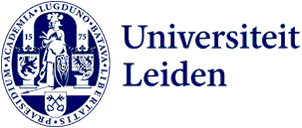
Tips and tricks on reducing work pressure
For the health of the staff and the whole organisation, it is important to have an open and honest conversation about work pressure – and to do something about it. New websites offer faculties and staff tips and tricks on how to reduce work pressure.
At Leiden University much is already being done to reduce work pressure and to support staff, Healthy University for instance. But knowledge and expertise are lacking on how to reduce work pressure at the faculty or institute level. To support and inspire faculties, a toolkit has been developed that offers ideas on how to reduce work pressure in your everyday practice.
The toolkit (in Dutch) options are best practices that faculties and the central organisation have shared with one another. They are mostly about changing our working practices: taking breaks between meetings, arranging for backup when staff go on holiday, allowing new lecturers to use their predecessors’ learning materials and ensuring managers set a good example by not putting in regular overtime. There are many more suggestions, which have been grouped into themes such as meetings and communication, the right to downtime, overtime, working arrangements and teaching and learning. Faculties and institutes can choose which options from the toolkit apply to them, which makes it easy for them to influence policies.
Staff
To support our staff we have a website with more tips and tricks. This also explains what work pressure is, what the dangers are and what you can do to manage and have an open and honest conversation about work pressure. Work pressure can be different for different people. It is about not only the amount of work but also whether people have the right tools to do their work or whether the work is at a higher intellectual level than they can cope with. Talking about work pressure is taboo for many people, which is a shame because if you can talk about this with your manager, you can make agreements on reducing work pressure. The Let’s Connect toolkit can help staff start this dialogue.
Workload Balance Community of Practice
The toolkit and websites about work pressure were developed by the Workload Balance Community of Practice and are partly based on the Strategic Plan. The community is a group of HR advisers from the faculties, Administration and Central Services and the Human Resource Management Directorate (HRM). Nathan Albury (HRM Policy Adviser): ‘With the Community of Practice we can link initiatives developed by the central organisation to what is happening at the faculties. Brigitte Heming (HRM adviser, Faculty of Humanities): ‘We’ve shared our best practices with one another. The resulting tips on the topic of work pressure were produced by us for our colleagues.’
If you have questions or ideas on reducing work pressure and would like to share them with the Community of Practice, please contact your HRM adviser of Nathan Albury, HRM Policy Adviser.
